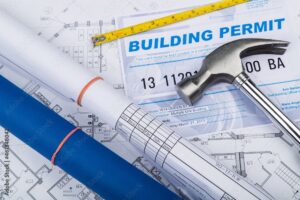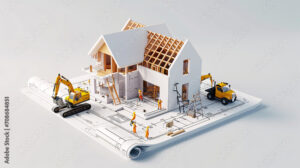Building or renovating your home can be an exciting but stressful process. Choosing the right contractor is crucial to ensuring a smooth and successful project. Unfortunately, some contractors may cut corners, telling you they’ve obtained the necessary building permits when they haven’t. This deception can lead to significant problems for homeowners, property investors, and remodelers.
In this blog post, we’ll explore why obtaining proper building permits is essential and the risks associated with contractors who bypass this critical step.
(479) Exposing Contractor Cons – 07.09.2024 – YouTube
Understanding Building Permits
What Are Building Permits?
Building permits are official approvals issued by local government agencies that allow construction or renovation projects to proceed. These permits ensure that the work complies with building codes and zoning laws, safeguarding the health and safety of residents.
Why Are Permits Necessary?
Permits serve several important purposes:
- Safety: Ensures the work meets local building codes and safety standards.
- Legal Compliance: Verifies that the project adheres to zoning regulations and other local laws.
- Insurance: Helps validate insurance claims if something goes wrong during or after the project.
- Property Value: Ensures that all improvements are legal, which can affect property value and ease of sale.
The Risks of Skipping Permits
Legal Trouble
Contractors who skip the permit process put you at risk of fines, legal penalties, and even forced demolition of the unpermitted work. Local building authorities can issue stop-work orders, adding delays and unexpected costs to your project.
Safety Concerns
Permits ensure that construction meets safety standards. Skipping permits may result in subpar work that jeopardizes the safety of occupants. For example, improper electrical wiring or plumbing can lead to fires, water damage, or structural failures.
Insurance Issues
Many insurance policies require proof of permits for claims related to construction defects or damages. Without proper permits, your insurance company may deny coverage, leaving you financially responsible for repairs or replacements.
Reduced Property Value
Unpermitted work can negatively impact your property value. Potential buyers may be hesitant to purchase a home with unpermitted renovations, fearing future legal or safety issues. Additionally, you may face difficulties when refinancing or selling your property.
How to Protect Yourself
Ask for Proof
Always ask your contractor for copies of the permits before work begins. Verify the authenticity with your local building department if you have any doubts.
Do Your Research
Research your local building codes and permit requirements. Understanding the regulations will empower you to ask informed questions and ensure your contractor follows the rules.
Hire Reputable Contractors
Choose contractors with a proven track record of obtaining necessary permits and complying with local regulations. Check online reviews, ask for references, and verify their licensing and insurance.
Include Permits in Your Contract
Make sure your contract explicitly states that the contractor is responsible for obtaining all necessary permits. This clause provides legal protection if the contractor fails to comply.
(479) Exposing Contractor Cons – 07.09.2024 – YouTube
For Tons of Great Free Information please hit “Like & Subscribe”
Websiteconstructionconsumeradvocacyinstitute.com
Podcastanchor.fm/galloway
www.youtube.com/@ConstructionConsumerAdvocacy
Conclusion
Ensuring your contractor obtains the proper building permits is vital for the success and safety of your construction or renovation project. Don’t fall victim to contractors who cut corners and put you at risk. By staying informed and vigilant, you can protect yourself, your property, and your investment.
Need help finding a trustworthy contractor? Contact us today to connect with licensed professionals who prioritize your safety and satisfaction.
—
Stay informed and safeguard your investments! Share your experiences and tips with us in the comments below. Let’s build a community of knowledgeable homeowners and remodelers. #HomeImprovements #Remodelers #PropertyInvestors



